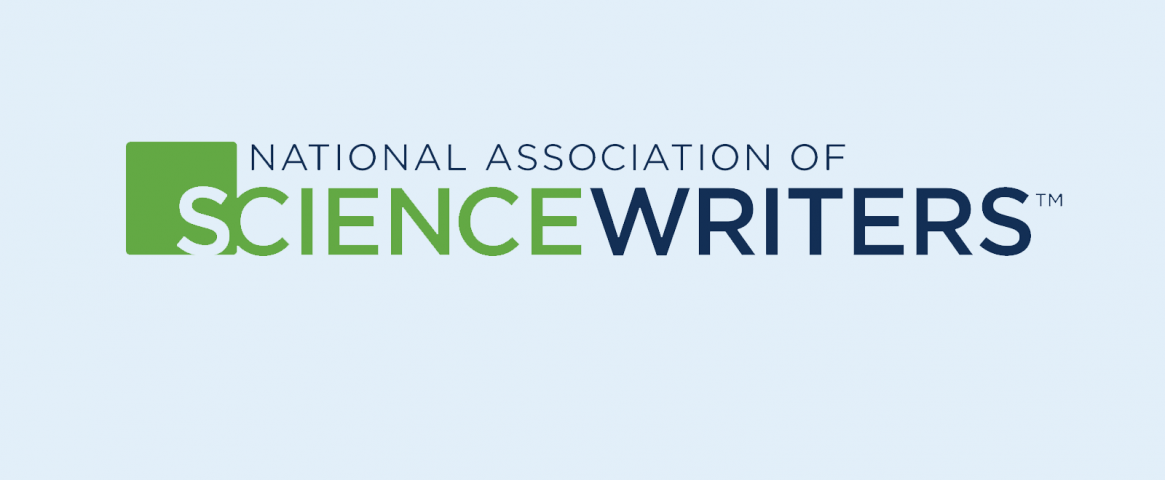We, the Board members of the National Association of Science Writers, are deeply saddened and angered by the killing of George Floyd, Breonna Taylor, and many other Black individuals, at the hands of police officers charged with protecting them and their communities. Recently we condemned the targeting of journalists covering protests and called for First Amendment protections, but our professional responsibilities do not stop there.
As an organization dedicated to the highest standards of journalism, we must at times remain on the sidelines with respect to issues about which we, as individuals, may have strong feelings. This is not such a time. Racism is not such an issue. No profession, and no person, is at liberty to ignore structural racism and violence. Civil rights, safety, and freedom are issues of fundamental importance and must be championed.
Our commitment to diversity, equity, accessibility, and inclusion applies to every aspect of NASW and extends to the broader field of science writing. Diversity is strength. When science writing is shaped by people from a variety of backgrounds, the stories we are able to tell and the context we are able to use to understand those stories is broadened. Incorporating many perspectives makes us better communicators and enables us to better serve our readers and communities. As an organization that supports science writers, serves readers, and reflects the impact of science on society, NASW is taking action and speaking up against systemic police brutality against Black people.
Racism bleeds into our work and workplaces and feeds into the system that perpetuates this violence. Science writers of color regularly confront both obvious and subtle racism in their workplaces, suffer abuse from readers and online trolls, and experience harassment from sources. The way we communicate can reinforce racist ideologies. To our Black members and Black science writers in the field, we see you. We support you. We value you. We encourage our members who are not Black to support your colleagues and your communities by taking actions that address racism and the ways we allow it to flourish. Meaningful actions could include:
- Knowing the context and history of racism in America as it relates to current events.
- Start by reading Ibram X. Kendi's article "The American Nightmare" in The Atlantic.
- Being mindful that your reporting shapes public perception, whether you intend it to or not.
- Consider Danielle K. Kilgo's piece "Riot or Resistance?" in The Conversation.
- Working to recognize implicit bias influencing your own mind and your reporting.
- Reflect on Issac Bailey's article "How Implicit Bias Works in Journalism" in Nieman Reports. Consider word choice and the sociopolitical implications of metaphors, as described in Cynthia Taylor and Bryan M. Dewsbury's "On the Problem and Promise of Metaphor Use in Science and Science Communication."
- Listening. Be mindful of the trauma of systemic racism, bias, and microaggressions.
- Start with Patrice Peck's recent piece "Black Journalists Are Exhausted" in The New York Times.
- Developing the skills to be an ally and address racism in your workplace and beyond.
- Consider these two pieces from the Diverse Voices series, a partnership between NASW's Diversity Committee and The Open Notebook. Both offer insights for editors, managers, and co-workers: Jane Hu's "Journalists of Color Face Harassment by Sources" and Kendra Pierre-Louis' "Navigating Newsrooms as a Minority."
- Watch an archived video of The Power Shift Project's one-hour program on allyship for media professionals. Review this helpful list of resources from InclusiveSciComm.
- Talking with your friends and family about racism.
- Read Kathiann Kowalski's Science News for Students article "Five Things Students Can Do About Racism."
- Parents of young children, and those who write for children, may find the National Association for the Education of Young Children's resource for teachers helpful.
We will continue to work to ensure that science writing in general, and NASW in particular, are diverse, equitable, and inclusive. We recognize that we have more work to do to make NASW reflect our society's diversity. We must do better, and we will. We remain actively intolerant of racism, harassment, discrimination, or incivility within our organization. We invite NASW members to express your thoughts, share resources, or tell us how we may be of service to you, by emailing Executive Director Tinsley Davis at director@nasw.org.
Siri Carpenter
NASW President
for the NASW board
Established in 1934, the National Association of Science Writers fosters the dissemination of accurate information regarding science by supporting the professional development of science writers. Membership is open to working journalists, PIOs, writers, authors, and other content creators, as well as students. Our community spans freelancers and employees working at newspapers, wire services, magazines, radio and television, and digital properties, as well as universities, agencies, and other institutions across the United States and beyond. Above all, NASW fights for the free flow of science news. To learn more, visit www.nasw.org and follow us at twitter.com/ScienceWriters.

